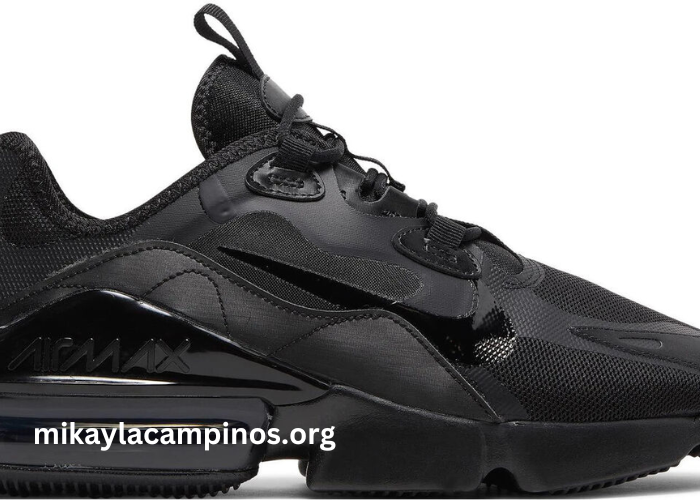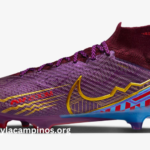Nike has long been synonymous with athletic excellence and innovative design, continually shaping the landscape of sports footwear. The phrase Nike: Shoes encapsulates a wide range of products that cater to athletes and enthusiasts alike, combining performance with style. This exploration delves into the various types of Nike shoes available, examining how each model meets the specific needs of different sports and lifestyles.
With a focus on quality and innovation, Nike: Shoes have become a staple in both athletic and casual wear. From running to basketball, Nike offers specialized footwear designed to enhance performance while providing comfort and support. This article will unpack the evolution of Nike shoes, their significance in popular culture, and what makes them a top choice for athletes around the world.
What Makes Nike Shoes Unique in the Market?
The uniqueness of Nike: Shoes lies in their blend of cutting-edge technology, innovative design, and brand heritage. Nike has invested heavily in research and development, resulting in shoes that enhance athletic performance through features like lightweight materials, advanced cushioning systems, and responsive traction. These innovations not only improve performance but also elevate the overall experience of wearing the shoes.
Moreover, the aesthetic appeal of Nike: Shoes contributes to their popularity. Nike collaborates with designers, athletes, and influencers to create limited-edition releases and stylish colorways that resonate with consumers. This fusion of functionality and style ensures that Nike shoes are not only suitable for sports but also fashionable enough for everyday wear.
Additionally, the brand’s commitment to sustainability is reflected in its shoe lines. Nike’s Move to Zero initiative aims to reduce waste and carbon emissions, leading to the development of eco-friendly shoes made from recycled materials. This forward-thinking approach appeals to environmentally conscious consumers who want to make responsible choices without compromising on quality or style.
How Do Nike Shoes Enhance Athletic Performance?
Performance enhancement is at the core of Nike: Shoes development. Each shoe model is meticulously designed to address the specific demands of different sports. For instance, running shoes feature lightweight construction and breathable materials, allowing for optimal airflow and minimal weight, which is crucial during long-distance runs. Advanced cushioning technologies, like Nike Air and React foam, provide exceptional energy return, reducing fatigue during intense workouts.
In sports like basketball, Nike: Shoes incorporate features such as ankle support and traction patterns that enhance stability and grip on the court. These design elements are essential for quick movements and agility, helping athletes perform at their best while minimizing the risk of injury. The integration of technology, such as Flyknit uppers for a snug fit and Dynamic Fit collars for added support, showcases Nike’s commitment to delivering high-performance footwear.
Furthermore, Nike continually seeks feedback from athletes to refine its shoe designs. By collaborating with professional sports teams and individual athletes, the brand ensures that its shoes meet the rigorous demands of competition. This direct input from users allows Nike to innovate and adapt its footwear to better serve athletes’ needs.
What Are the Different Types of Nike Shoes Available?
Nike offers an extensive range of shoe categories under the Nike: Shoes brand, each tailored to different activities and preferences. Running shoes, basketball sneakers, training footwear, and lifestyle sneakers are just a few examples of the diverse options available. Each category features specific technologies and design elements that cater to the unique requirements of the sport or activity.
Running shoes are designed for various terrains and distances. Nike’s offerings include road running shoes, trail shoes, and racing flats, each engineered to provide the right balance of cushioning, support, and durability. For those who engage in high-intensity training, Nike’s training shoes are built to withstand the rigors of workouts, offering stability and versatility for various exercises.
In the basketball category, Nike: Shoes are crafted to support explosive movements, featuring technologies that enhance grip and ankle support. Signature models, such as those endorsed by top NBA players, combine performance features with stylish designs that appeal to both athletes and sneaker enthusiasts. Lifestyle sneakers, on the other hand, bridge the gap between sports and fashion, making them suitable for casual wear while retaining Nike’s performance heritage.
How Does Nike Incorporate Technology in Shoe Design?
Technology is a key driver of innovation in Nike: Shoes. The brand consistently integrates advanced materials and engineering techniques to create footwear that enhances athletic performance. For instance, the use of Flyknit technology allows for a lightweight, form-fitting upper that provides support without sacrificing breathability. This adaptive fit enhances comfort during prolonged wear, making it ideal for athletes and casual users alike.
Moreover, Nike’s proprietary cushioning technologies play a crucial role in shoe performance. The Air cushioning system, known for its responsive and lightweight feel, has become synonymous with Nike footwear. It absorbs impact and provides energy return, allowing athletes to perform at their peak without experiencing excessive strain. Similarly, the React foam technology offers a soft yet responsive ride, perfect for both running and training activities.
Additionally, Nike utilizes data-driven insights to optimize its shoe designs. Through the use of 3D scanning and pressure mapping, the brand analyzes foot movement and pressure points, allowing for the creation of shoes that cater to individual biomechanics. This attention to detail ensures that Nike: Shoes provide the support and comfort athletes need, reducing the risk of injuries and enhancing performance.
What Role Do Athletes Play in Nike’s Shoe Development?
Athletes play a vital role in shaping the development of Nike: Shoes. The brand collaborates with professional athletes across various sports to gain insights into their specific needs and preferences. By understanding how athletes perform and the challenges they face, Nike can design shoes that effectively address those demands.
This collaboration often leads to the creation of signature shoe lines that reflect the personality and performance style of individual athletes. For instance, shoes designed in partnership with elite runners or basketball stars often feature unique design elements and performance enhancements tailored to their sport. This direct involvement ensures that the shoes meet the high standards expected by professional athletes while also appealing to their fan base.
Moreover, Nike hosts events and feedback sessions where athletes can test prototypes and provide real-time input on performance and comfort. This iterative process allows Nike to refine its products before they hit the market, ensuring that Nike: Shoes deliver on their promises of quality and performance.
How Does Nike Address Sustainability in Shoe Production?
Sustainability is a growing focus for Nike, and it is integrated into the design and production of Nike: Shoes. The brand is committed to reducing its environmental impact through initiatives that promote eco-friendly practices. One key aspect of this commitment is the use of recycled materials in shoe production, which helps to minimize waste and conserve resources.
Nike’s Move to Zero campaign aims for zero carbon and zero waste across the company’s supply chain. This initiative has led to innovations such as the use of Nike Grind, a material created from recycled shoes and manufacturing scraps, which is incorporated into the soles of new footwear. By repurposing materials, Nike reduces its reliance on virgin resources while creating high-performance products.
Additionally, Nike focuses on creating durable products that extend the life of its shoes. By investing in quality craftsmanship and materials, the brand encourages consumers to choose sustainability by purchasing fewer products over time. This approach aligns with the Nike: Shoes ethos, promoting responsible consumerism while still delivering on performance and style.
What Is the Impact of Nike Shoes on Popular Culture?
The influence of Nike: Shoes extends far beyond the athletic realm; they have become cultural icons that reflect style, status, and identity. The brand’s collaborations with celebrities, designers, and artists have elevated Nike shoes to a level of cultural significance that resonates with diverse audiences. Limited-edition releases and signature lines often create a sense of exclusivity, driving demand and shaping trends.
Nike’s impact on streetwear culture is particularly notable. The fusion of sports and fashion has led to a new generation of sneaker enthusiasts who view Nike shoes as more than just athletic gear. They are seen as essential elements of personal style, often featured in high-fashion runways and popular media. This crossover has solidified Nike’s position as a leader not only in sports but also in contemporary culture.
Furthermore, the storytelling behind Nike: Shoes plays a crucial role in their cultural impact. Nike’s marketing campaigns often celebrate individuality and self-expression, resonating with consumers’ desire for authenticity. By connecting with consumers on an emotional level, Nike creates a loyal community that values the brand’s message of empowerment and excellence.
How Can Consumers Choose the Right Nike Shoes for Their Needs?
Selecting the right pair of Nike: Shoes involves understanding individual needs and preferences. Consumers should consider factors such as intended use, foot type, and personal style when making their choice. For instance, runners may prioritize cushioning and support, while basketball players might focus on traction and ankle support.
Trying on different models is essential for finding the perfect fit. Nike offers a range of sizing options and designs, ensuring that there is something for everyone. Utilizing in-store experts or online fit guides can also aid consumers in selecting the right size and style that aligns with their activities.
Additionally, researching specific technologies and features can help consumers make informed decisions. Nike provides detailed information on its website regarding the benefits of each shoe model, including reviews and comparisons. By understanding what each shoe offers, consumers can choose Nike: Shoes that meet their specific performance and style needs.
Conclusion
Nike’s commitment to excellence is encapsulated in the phrase Nike: Shoes, representing a dedication to performance, innovation, and style. Through cutting-edge technology, athlete collaborations, and sustainability efforts, Nike continues to redefine the standards of athletic footwear. As the brand evolves, its influence on sports, culture, and individual expression remains profound, inspiring athletes and consumers to push their limits and embrace their potential. With a diverse range of options available, Nike shoes cater to the needs of every individual, making them a top choice in the world of athletic and lifestyle footwear.



